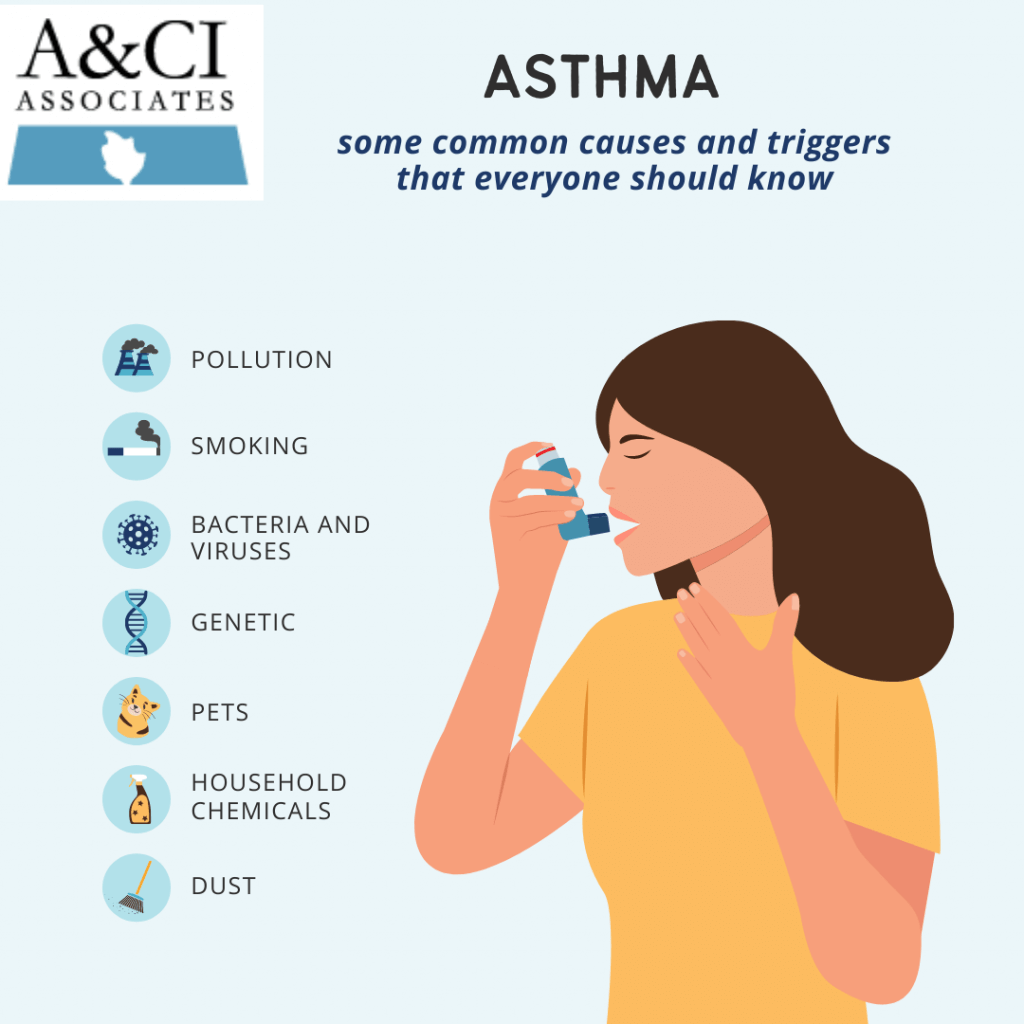What is Asthma, and What are the Symptoms
- Coughing
- Wheezing
- Chest tightness
- Shortness of breath
Asthma exacerbation or some people refer to it as an asthma attack, is a situation when your airways become narrower and don’t let as much air in or out of your lungs. This can cause difficulty breathing, wheezing, and other symptoms such as:
- Bronchospasm: the muscles around the airways constrict, making it difficult to breathe
- Inflammation: the lining of the airways becomes swollen, preventing air from entering and exiting the lungs
- Mucus production: the body creates more mucus during an asthma attack, clogging the airways
How Do I Know if I Have Asthma?
The most common way to diagnose asthma is by taking a lung function test. This test measures how much air you can breathe in and out and how quickly you can breathe. Other tests that may be used to diagnose asthma include a chest X-ray, blood test, or sputum test. During your initial visit, our asthma specialist can determine which option is right for you based on your symptoms.

What Causes Asthma?
Asthma can develop in anyone for a variety of reasons. Some of the more common factors include:
- If you have allergies, you are at a higher risk for developing asthma.
- Environmental factors such as allergens, toxins, and second-hand smoke can cause asthma.
- Having a family history of asthma or allergic diseases puts you at a higher risk for developing the disease.
- Having severe respiratory infection damage young children’s lungs and increase the risk for asthma.
However, there is no one cause – asthma can develop in anyone for any number of reasons. It’s important to work with a specialist to determine your triggers and create a plan to manage your symptoms.
Asthma Treatments
The most common ways to treat asthma are medications such as bronchodilators, steroids, and other various medications. However, your doctor will create a plan that meets your needs. Common asthma treatments include:
- Inhalers: Inhalers are the most common type of medication used to treat asthma. They come in two forms: rescue inhalers and preventer inhalers. Rescue inhalers are used to treat asthma exacerbation, and preventer inhalers are used to prevent asthma attacks from happening.
- Lifestyle Changes: Making changes to your daily routine can help improve your symptoms and improve the quality of your life. For example, if you smoke or vape, quitting will improve your health and can improve your symptoms.
- Therapy: Therapy is another type of treatment that can be used for asthma. Therapy includes things like breathing exercises and relaxation techniques.
We offer a variety of ways to treat asthma that will help you manage your symptoms. Since each person is different, one of our asthma care doctors will take the time to work with you and find the best solution.
Working With an Asthma specialist
At Allergy & Clinical Immunology Associates, PC, we offer a variety of ways to help you breathe easier and reduce asthma attacks. Contact us today to schedule an appointment – Pittsburgh office: 412-833-8811. Washington Office: 724-228-7710